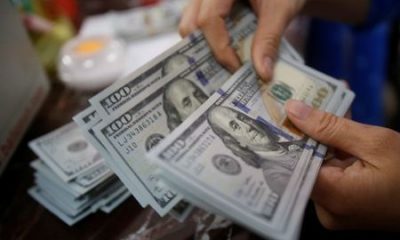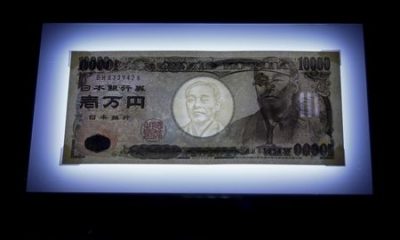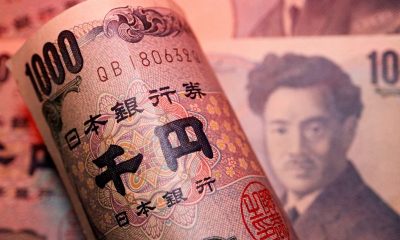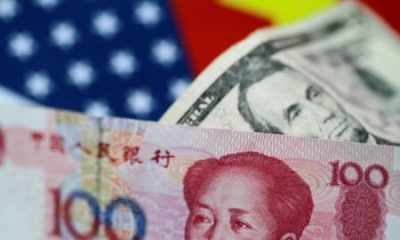Forex
ECB: european economy today surprises with its resilience
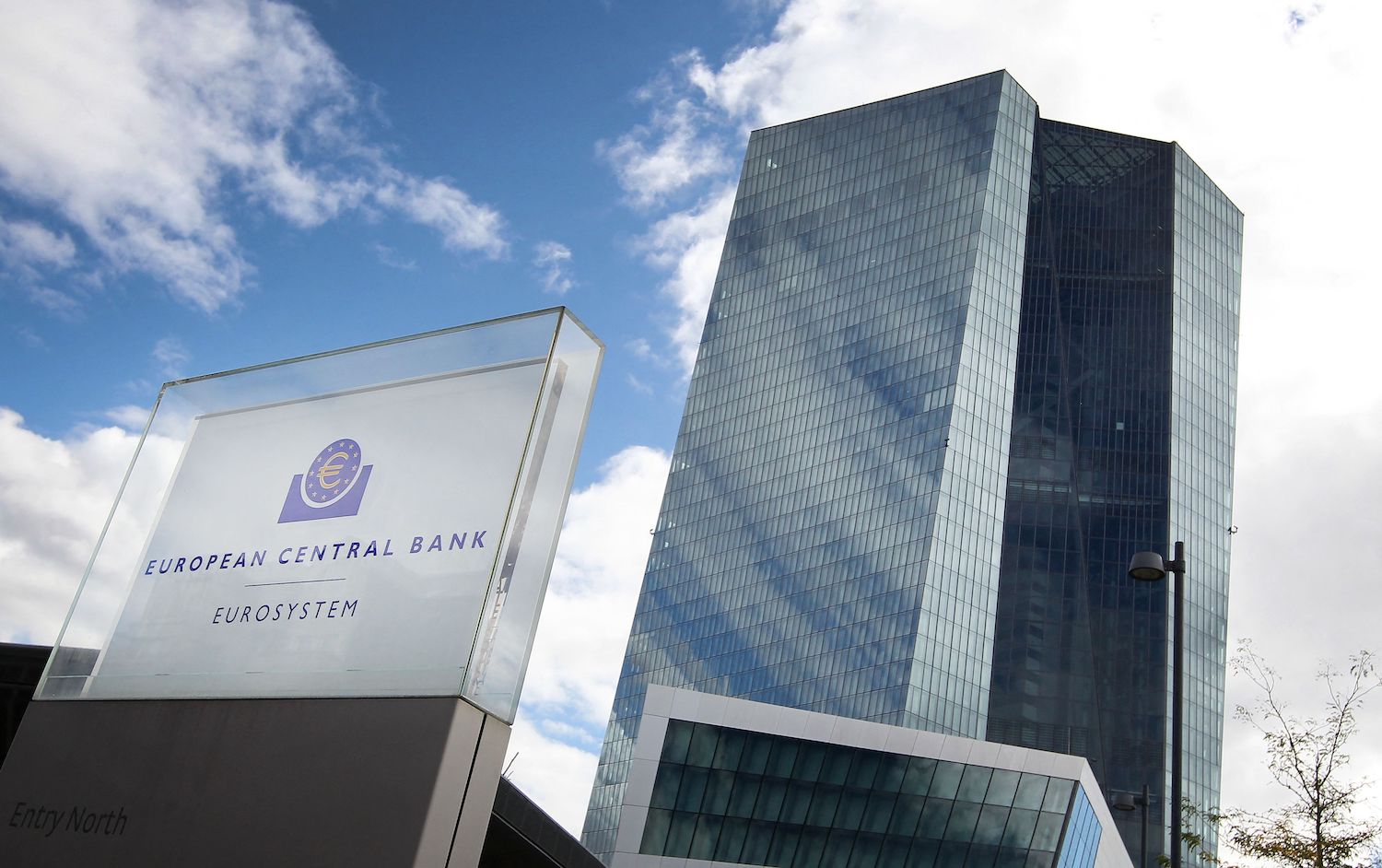
The European economy today is performing better than expected, despite record inflation and the energy crisis, said Mario Centeno, head of Portugal’s central bank and a member of the European Central Bank’s (ECB) Governing Council. This is positive news for the euro.
“European economy 2023 surprises us quarter after quarter,” he said during an event at the World Economic Forum in Davos organized by Bloomberg.
“The fourth quarter in Europe is likely to be positive as well. We may also get a surprise in the first half of the year,” Centeno added.
Some analysts are also showing increased optimism about the eurozone economy. For instance, a week ago, Goldman Sachs (NYSE:GS) improved its forecast for the currency bloc’s GDP for 2023 and now expects growth of 0.6% instead of the 0.1% decline previously expected.
In the meantime, the ECB will continue its fight against inflation, Centeno noted.
That fight lies in the sharpest key interest rate hike in the regulator’s history. The rate is now at 2 percent, and analysts polled by Bloomberg expect two 50-basis-point hikes, in February and March, and another 25-basis-point hike in May or June.
Earlier, we reported that inflation slowed to 9.2% in the eurozone in December and 10.4% in the EU.
Forex
Yen drifts lower from 2-1/2-month peak vs dollar as markets stabilize
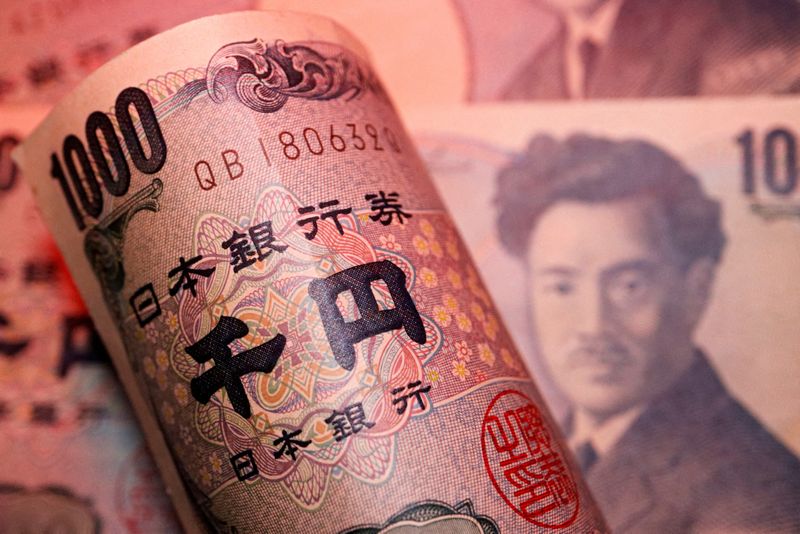
By Gertrude Chavez-Dreyfuss
NEW YORK (Reuters) -The yen edged lower from a 2-1/2-month high against the U.S. dollar on Thursday, as financial markets stabilized, with investors looking ahead to next week’s Bank of Japan meeting which could see a potential rate hike.
The Japanese unit this week rallied sharply as market participants unwound their long-held bets against the currency. At the same time, a plunge in global stocks in recent sessions had driven investors toward traditionally safe assets such as the Swiss franc and yen.
U.S. equities, however, recovered on Thursday after a steep sell-off in the previous session.
For the week, the yen has risen 2.4%, on track for its best weekly gain since late April. The greenback was last slightly down at 153.84 yen.
The dollar, however, trimmed losses against the yen and euro after data showed the world’s largest economy expanded faster than expected and inflation slowed in the second quarter. That reduced brewing expectations of a larger-than-expected rate cut in September, or a sudden Federal Reserve easing at next week’s meeting.
“The Japanese yen is flatlining on diminished safe-haven demand, and the speculative fervor behind its recent bull run seems to be running out of steam,” said Karl Schamotta, chief market strategist at Corpay in Toronto.
“We think markets have gotten a little too far over their skis given that underlying economic fundamentals don’t yet support a rapid tightening cycle from the Bank of Japan, and that rate differentials will remain wide even if the Fed begins cutting in coming months.”
The rate futures market has priced in a 67.2% chance that the BOJ will raise rates next week by 10 basis points (bps), up from about 40% earlier in the week, according to LSEG estimates.
The euro was slightly up against the dollar at $1.0846 , with the flat at 104.36. The index was at 104.21 just before the release of economic growth data.
Advance estimates showed that U.S. gross domestic product (GDP) grew at a 2.8% annualized rate in the last quarter. Economists polled by Reuters had forecast GDP rising at a 2.0% rate.
The personal consumption expenditures (PCE) price index, excluding the volatile food and energy components, increased at a 2.9% rate after surging at a 3.7% pace in the first quarter.
Against the Swiss franc, the dollar dropped 0.5% to 0.8806 francs.
AHEAD OF ITSELF
“The market got ahead of itself on Fed cuts. Before the GDP number, the market is pricing as if the Fed is going to cut 50 basis points in September,” said Marc Chandler, chief market strategist at Bannockburn Forex in New York.
He also cited comments from former New York Fed President Bill Dudley in a Bloomberg column on Wednesday, who said the Fed should cut rates next week, citing recent employment data.
“The GDP number shows that the Fed is not under that kind of urgency,” Chandler said.
The Fed remains firmly on track to cut interest rates in September, according to fed funds futures data. The futures market has also priced in about 68 basis points (bps) of cuts this year, based on LSEG calculations.
U.S. jobless claims data were also consistent with an economy still holding up well.
Initial claims for state unemployment benefits dropped 10,000 to a seasonally adjusted 235,000 for the week ended July 20, the data showed. Economists polled by Reuters had forecast 238,000 claims for the latest week.
The only blemish, however, was the U.S. durables report, which showed durable goods orders fell 6.6% in June on slumping transportation orders, compared with expectations for a 0.3% rise.
In other currencies, the Australian dollar fell to US$0.6519, its lowest since early May. It was last down 0.6% against the greenback at US$0.6541.
rallied against the dollar, which fell to its lowest since early May at 7.205, as the yen’s rally spilled over to the Chinese unit. The dollar was last down 0.2% at 7.245
Currency
bid
prices at
25 July
07:28
p.m. GMT
Descripti RIC Last U.S. Pct YTD Pct High Low
on Close Change Bid Bid
Previous
Session
Dollar 104.31 104.38 -0.05% 2.90% 104.45 104.
index 07
Euro/Doll 1.0852 1.084 0.12% -1.68% $1.087 $1.0
ar 829
Dollar/Ye 153.9 153.86 0.01% 9.09% 154.3 151.
n 96
Euro/Yen 1.0852 166.79 0.13% 7.31% 167.59 164.
83
Dollar/Sw 0.8806 0.8852 -0.53% 4.62% 0.8854 0.87
iss 78
Sterling/ 1.2861 1.2906 -0.33% 1.08% $1.2913 $1.0
Dollar 829
Dollar/Ca 1.3808 1.3808 0% 4.16% 1.385 1.37
nadian 97
Aussie/Do 0.6549 0.6582 -0.46% -3.92% $0.6582 $0.6
llar 511
Euro/Swis 0.9554 0.9594 -0.42% 2.89% 0.9598 0.95
s 22
Euro/Ster 0.8435 0.8397 0.44% -2.69% 0.8439 0.83
ling 95
NZ 0.5893 0.593 -0.68% -6.8% $0.593 0.58
Dollar/Do 73
llar
Dollar/No 11.0151 11.0265 -0.1% 8.68% 11.1381 10.9
rway 83
Euro/Norw 11.9548 11.953 0.02% 6.49% 12.0856 11.9
ay 317
Dollar/Sw 10.8111 10.7772 0.31% 7.39% 10.8685 10.7
eden 65
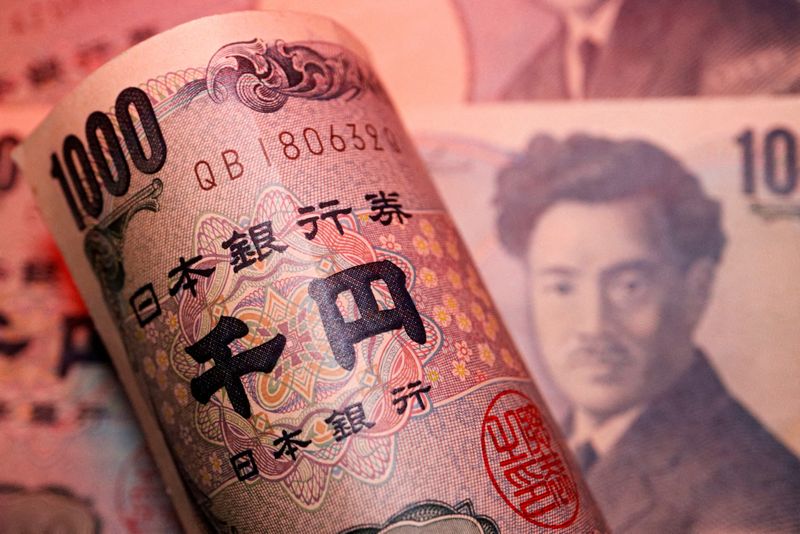
Euro/Swed 11.7314 11.6822 0.42% 5.45% 11.7786 11.6
en 784
Forex
Citi sees potential for USD/JPY tactical longs amid strong US GDP data
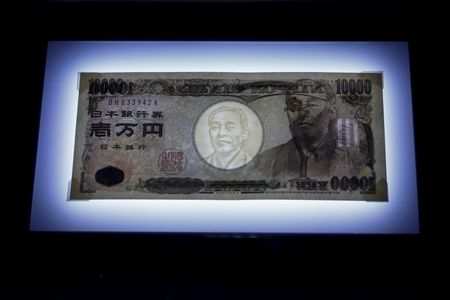
Citi highlighted the Japanese yen’s major support level against the US dollar, noting that the pair had maintained its position above the 152 mark.
This level was previously identified as a significant resistance point throughout 2022 and early 2023, and it served as a crucial breakout area in 2024. Additionally, the 200-day moving average (200dma) is positioned just below this threshold at 151.54.
The firm observed that the stronger-than-expected US GDP and Core Personal Consumption Expenditures (PCE) figures released today, coupled with their anticipation of a hawkish Federal Reserve and no change in policy from the Bank of Japan (BoJ), present an attractive risk/reward scenario for investors considering tactical long positions in the USDJPY pair heading into next week.
Citi clarified that this recommendation is tactical in nature, given their broader expectation of a risk-off environment with heightened volatility over the coming months. They suggest that while high volatility can lead to aggressive counter-trend movements, it is also an opportunity to capitalize on.
Looking ahead, Citi anticipates better opportunities to sell the USDJPY pair, which may arise soon. They speculate that a rally to the 55-day moving average (55dma), which stands at 157.75, could offer appealing levels for selling if it materializes.
This article was generated with the support of AI and reviewed by an editor. For more information see our T&C.
Forex
Dollar slips ahead of GDP data; euro rises and yen surges
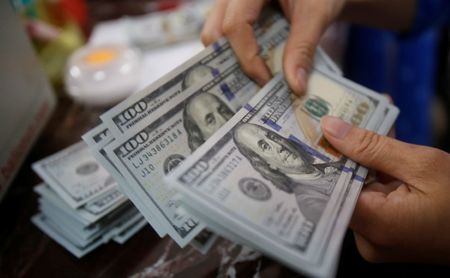
Investing.com – The U.S. dollar slipped lower Thursday, the euro posted small gains while the Japanese yen climbed to multi-month highs ahead of next week’s Bank of Japan meeting.
At 05:25 ET (09:25 GMT), the Dollar Index, which tracks the greenback against a basket of six other currencies, fell 0.2% to 103.950, extending an overnight decline.
Dollar slips ahead of GDP data
The dollar retreated Thursday, extending an overnight decline amid increasing confidence that the will cut interest rates in September.
data for the second quarter are due later in the session, and is expected to show annualized growth of 2.0%.
This would be above the 1.4% growth seen in the first quarter, but would remain considerably slower than the 4.2% pace seen in the second half of last year.
The release will also show inflation slowed considerably last quarter, with the GDP price index falling to 2.6% from 3.1%, ahead of Friday’s price index data, the Federal Reserve’s favored gauge of inflation.
The Fed is set to meet next week, and is widely to keep interest rates steady while signaling a rate cut in September.
German business morale falls again
In Europe, rose 0.1% to 1.0847, with the euro edging higher despite German business morale unexpectedly falling in July, the third consecutive decline in Germany’s most prominent leading indicator..
The Ifo institute said its sank to 87.0 in July from 88.6 in June.
“The German economy is stuck in the crisis,” said Ifo president Clemens Fuest.
The kept interest rates on hold at 3.75% last week, but markets are pricing in just short of two more ECB rate cuts for the rest of this year.
traded 0.2% lower at 1.2885, falling back from the 1.30 level ahead of next week’s Bank of England policy-setting meeting.
UBS expects the central bank to trim interest rates in what is widely seen as a close call as to when it will start what is likely to be a slow and steady reduction path.
Yen goes from strength to strength
In Asia, fell 0.7% to 152.72, with the pair falling to its weakest level in 2-1/2 months as traders abandoned short yen bets in the run up to the BOJ’s July meeting in the wake of suspected currency market intervention by the Japanese government.
The is expected to consider a 10 basis point hike, and could unveil a plan to roughly halve bond purchases in coming years.
“USD/JPY has now corrected 6% off its high. This has proved another successful intervention campaign for Japanese authorities,” said analysts at ING, in a note.
“We think the success of the intervention has had less to do with the size of the FX sales and more to do with the timing. As was the case in September/October 2022, Japanese FX intervention has been timed to coincide with a dovish reappraisal of Fed policy. Very clever.”
slipped 0.5% lower to 7.2281, but remained near an eight-month high amid persistent concerns over a slowing economic recovery in the country. Surprise rate cuts by the People’s Bank added to pressure on the currency and did little to lift spirits over the Chinese economy.

 Forex2 years ago
Forex2 years agoForex Today: the dollar is gaining strength amid gloomy sentiment at the start of the Fed’s week

 Forex2 years ago
Forex2 years agoHow is the Australian dollar doing today?

 Forex2 years ago
Forex2 years agoUnbiased review of Pocket Option broker

 Forex2 years ago
Forex2 years agoDollar to pound sterling exchange rate today: Pound plummeted to its lowest since 1985

 Cryptocurrency2 years ago
Cryptocurrency2 years agoWhat happened in the crypto market – current events today

 World2 years ago
World2 years agoWhy are modern video games an art form?

 Stock Markets2 years ago
Stock Markets2 years agoMorgan Stanley: bear market rally to continue

 Economy2 years ago
Economy2 years agoCrude oil tankers double in price due to EU anti-Russian sanctions

